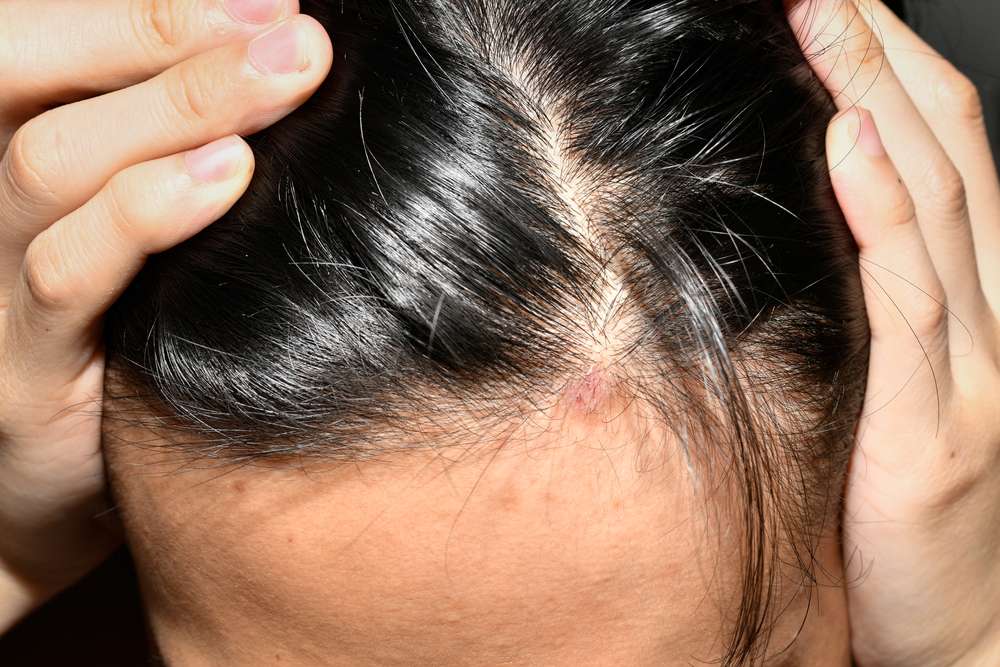Scalp Psoriasis: Understanding Symptoms and Treatments
Scalp psoriasis affects millions and causes thick, inflamed, scaly patches on the scalp that can itch, hurt, or flake onto clothing. Learn how to tell it apart from dandruff, what topical and systemic treatments work, and which home remedies may help. Practical tips for managing symptoms and when to see a dermatologist.

Scalp psoriasis is a chronic autoimmune condition that leads to rapid skin cell turnover on the scalp, producing raised, scaly plaques. While it can be persistent and sometimes embarrassing, a variety of medical and home-based strategies can reduce symptoms and improve day-to-day comfort. This guide explains how to recognize scalp psoriasis, how it differs from dandruff, and what treatment options are available.
How scalp psoriasis differs from dandruff
Although both scalp psoriasis and dandruff cause flaking and itching, they are distinct disorders. Dandruff (seborrheic dermatitis) is often linked to oil imbalance and yeast overgrowth, producing small, loose white flakes and mild irritation. Scalp psoriasis creates thicker, silver-gray or white scales that stick to the scalp and are often surrounded by red, inflamed skin. Psoriatic plaques tend to be denser, more adherent, and may extend beyond the hairline. In contrast, dandruff usually lacks the pronounced inflammation and raised plaques seen with psoriasis.
Common symptoms to watch for
Scalp psoriasis can range from barely noticeable scaling to extensive, uncomfortable plaques. Typical signs include:
- Red, well-demarcated patches covered by thick scales
- Persistent itching and sometimes a burning or stinging sensation
- Dry flakes that shed onto shoulders or clothing
- Temporary hair thinning or loss when inflammation or scratching is severe
- Bleeding, soreness, or crusting after aggressive scale removal
- Large, crusty plaques that can spread beyond the scalp onto the forehead or neck
If symptoms interfere with sleep, self-image, or daily function, consult a healthcare professional for targeted treatment.
Topical therapies commonly used
Topical treatments are typically the first approach for mild to moderate scalp psoriasis because they act directly where the disease is active. Options include:
- Corticosteroids: Potent anti-inflammatory creams, foams, or solutions that reduce redness and itching. They are effective for flare control but should be used as directed to avoid side effects with long-term use.
- Vitamin D analogues: Synthetic vitamin D compounds help slow skin cell proliferation and can reduce scaling when applied regularly.
- Salicylic acid: A keratolytic that softens and helps remove thick scales, often used before applying other topicals to improve penetration.
- Coal tar: An older therapy that can reduce inflammation and slow cell growth; available in shampoos and topical formulations, though it may have an odor and can stain.
- Medicated shampoos: Shampoos containing salicylic acid, coal tar, or other active agents can target widespread scalp involvement and make daily care easier.
Combining these treatments under the guidance of a clinician often achieves better results than using any single product alone.
When systemic treatments are needed
If scalp psoriasis is severe, widespread, or refractory to topical care, systemic medications that work throughout the body may be recommended. These include:
- Methotrexate: An immunosuppressant that can slow abnormal skin cell growth and reduce inflammation.
- Cyclosporine: A potent immune-system suppressant used for short-term control of severe flares because of its side-effect profile.
- Biologics: Targeted therapies that block specific immune pathways involved in psoriasis; they can be highly effective for scalp and body disease.
- Oral retinoids: Vitamin A–derived medications that can normalize skin cell production in some patients.
Systemic drugs require monitoring by a healthcare provider because of potential side effects and interactions. A dermatologist will weigh risks and benefits when recommending these options.
Natural and complementary remedies
Some people find relief from adjunctive, non-prescription measures. These may help the scalp feel less irritated but usually don’t replace medical treatment:
| Natural Remedy | Potential Benefit | Precautions |
|---|---|---|
| Aloe vera | May calm inflammation and reduce itching | Possible allergic reaction in some users |
| Tea tree oil | Antimicrobial and anti-inflammatory effects | Can irritate skin if used undiluted; patch-test first |
| Coconut oil | Moisturizes and loosens scales | Heavy oil may not suit all scalps and can clog follicles |
| Apple cider vinegar | May rebalance scalp pH and relieve itching | Can sting or burn on cracked skin or open sores |
| Oatmeal rinses | Soothes irritation and reduces inflamed skin | Use finely ground oatmeal to avoid blockages in drains |
Prices, rates, or cost estimates mentioned in this article are based on the latest available information but may change over time. Independent research is advised before making financial decisions.
While some of these remedies offer symptomatic relief, always discuss them with your dermatologist, especially if you are using prescription treatments.
Practical tips for managing scalp psoriasis
- Follow a consistent treatment routine prescribed by your clinician; intermittent use often reduces effectiveness.
- Use gentle, moisturizing hair care products and avoid harsh chemicals or excessive heat styling during flares.
- When removing scales, do so gently—forceful scraping can worsen inflammation and lead to bleeding or infection.
- Protect your scalp from sunburn; limited sun exposure may help some people, but overexposure can be harmful.
- Manage stress, get adequate sleep, and maintain a balanced diet, as lifestyle factors can influence flare frequency for some individuals.
Working closely with a dermatologist helps tailor therapies to your disease severity, lifestyle, and treatment goals. Because psoriasis varies from person to person, finding the right combination of topical, systemic, and supportive measures can take time.
This article is for informational purposes only and should not be considered medical advice. Please consult a qualified healthcare professional for personalized guidance and treatment.






